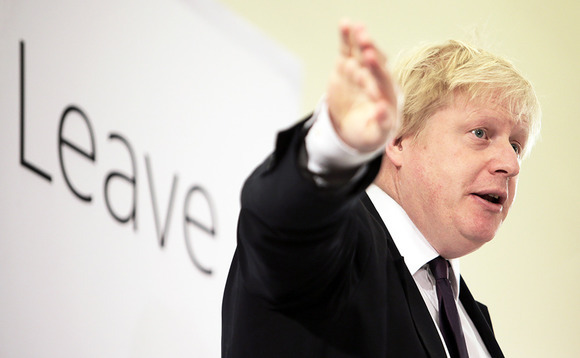
British investors hold fire as EU vote looms

British dealflow has dropped to its lowest level since the financial crisis, as the country prepares to deliver its verdict on whether to remain part of the European Union. Kenny Wastell reports
Introduced as one of the Conservative party's key pledges in the 2015 UK general election – and delivered after the party's surprise majority victory – Britons head to the polls on 23 June to vote in the country's referendum over EU membership. The topic has predictably and progressively dominated public political discourse as the date approaches, with multiple surveys and statistics released in support of each side of the argument.
In May, financial advisory firm RSM carried out research gauging private equity professionals' views on the matter. The survey found 67% of respondents intended to vote for Britain to remain within the EU, while 74% predicted up to two years of more challenging deal-making conditions in the event of an exit vote. Among the main factors influencing respondents' opinions were longer processes and fear of an increase in transaction costs.
Yet RSM's research comes with two caveats: around one in seven respondents said EU red tape will influence their decision and, more notably, the survey only received 92 responses. It appears many in the sector are playing their cards close to their chests.
The total of 78 deals in Q1 2016 represents the lowest number since Q4 2009, when the world was in the midst of the financial crisis
There can be little doubt that – as is the case across the British economy as a whole – the impending vote is driving down the number of investments made by private equity and venture capital players. According to unquote" data, February and March each saw just 28 buyout or expansion deals, the lowest number since November 2011 when 21 were recorded. More striking still are the quarterly statistics: a total of 78 deals in Q1 2016 represents the lowest number since Q4 2009, when the world was in the midst of the financial crisis.
Trends in aggregate monthly deal values tell a similar story. With a total of £517m deployed by GPs and VCs, March 2016 accounted for the second lowest aggregate value since September 2012. On a quarterly basis, the £2.3bn deployed in Q1 2016 is also the lowest level since the second quarter of 2009. However, it is reasonable to question whether the drop-off in activity and investment is due to fears of what a post-EU Britain would mean for business, or if it is simply due to uncertainty.
Markets have a well-documented habit of responding nervously to political upheaval of any kind. Indeed one industry insider recently told unquote" that, despite personally backing the UK's continued membership of the EU, their practice's activity had only been marginally impacted in recent months. Furthermore, the source in question fully expected dealflow to pick up soon after the vote regardless of its outcome, as investors will have a clearer view of the economic landscape ahead.
Certainty approaches
Similarly, the recent annual results of listed firm 3i show that it is unpredictability, combined with "continuing market volatility", that has suppressed investor appetite. The GP also said reduced levels of M&A and delays in capital investment are "likely to persist while the uncertainty remains". Following the vote, these doubts will only remain a factor should the UK both vote to leave the EU and struggle to negotiate new international trade deals.
Meanwhile, credit providers have reportedly been introducing "flexit" clauses in the lead-up to the referendum, introducing flexible interest rates on loans should the UK vote to leave. This is partly for them to make the best of this predictable slowdown in investment, yet for private equity firms eyeing British assets, the decision over whether to complete leveraged buyouts will depend on multiple variables. In particular, a growth strategy for a business inside the EU region is logically more likely to involve geographic expansion throughout the continent.
Observers will likely have their own views on whether the country should remain in the EU or leave. But whichever path the country chooses, it is probable Q3 will see investors getting back to business. What remains unknown is whether this will mean business as usual, or another "new normal".
Latest News
Stonehage Fleming raises USD 130m for largest fund to date, eyes 2024 programme
Sponsor acquired the public software group in July 2017 via the same-year vintage Partners Group Global Value 2017
Stonehage Fleming raises USD 130m for largest fund to date, eyes 2024 programme
Czech Republic-headquartered family office is targeting DACH and CEE region deals
Stonehage Fleming raises USD 130m for largest fund to date, eyes 2024 programme
Ex-Rocket Internet leader Bettina Curtze joins Swiss VC firm as partner and CFO
Stonehage Fleming raises USD 130m for largest fund to date, eyes 2024 programme
Estonia-registered VC could bolster LP base with fresh capital from funds-of-funds or pension funds









